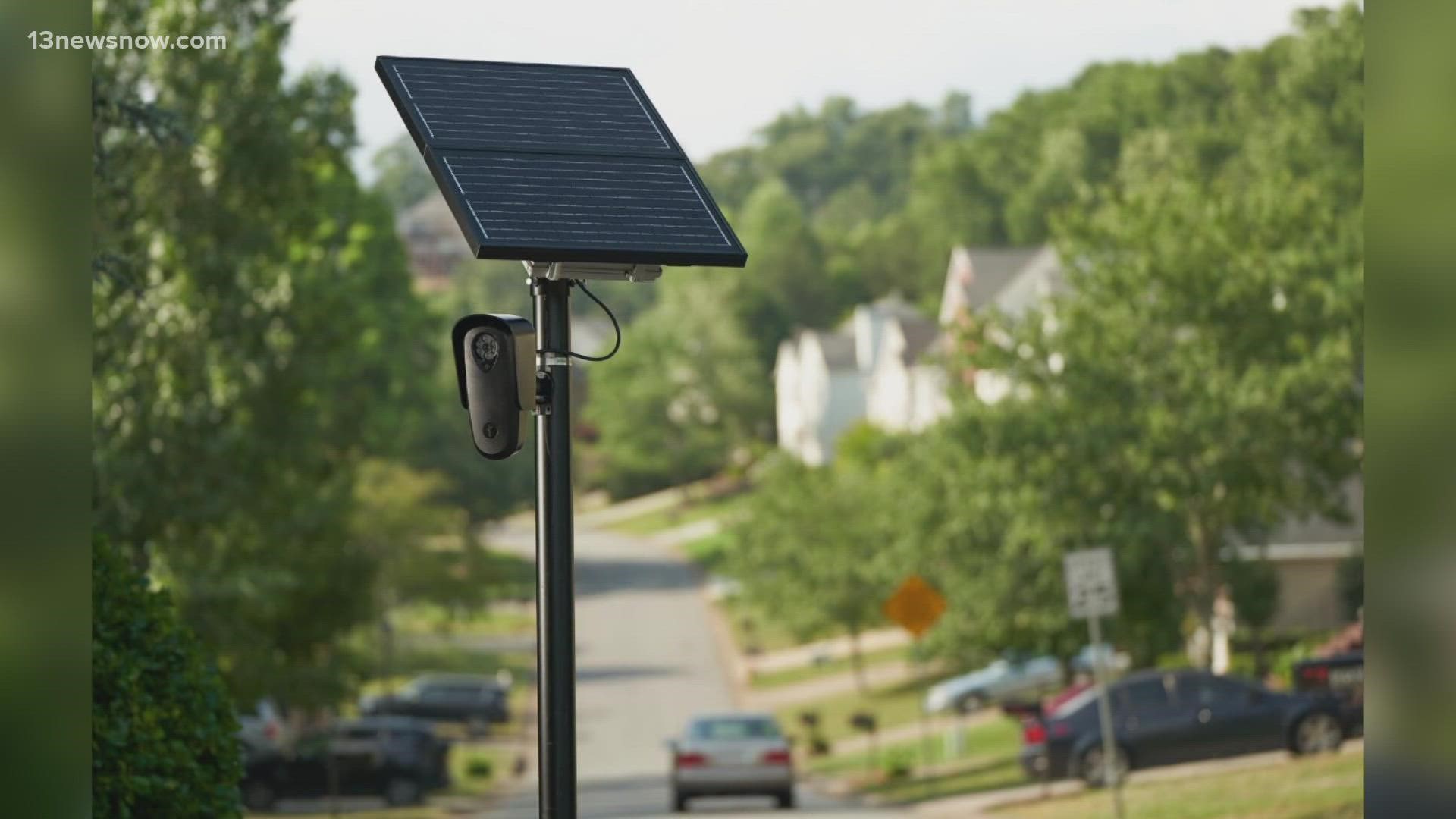NORFOLK, Va. — The Suffolk Police Department on Wednesday began installing Automated License Plate Reading (ALPR) cameras in high-traffic areas and on roads that lead into the city, Suffolk PD Captain Jesse Epperson said.
The cameras will capture the backs of vehicles whenever they drive past them at a location known to the department. That photo -- along with the time and date it was taken -- will then be saved in the department's database.
The technology can also alert officers when it picks up a license plate number related to a stolen vehicle, wanted person, or AMBER Alert.
Epperson said that only qualified members of the department will have access to the data, and strict and updated policies are in place regarding the use of the data.
“We’re excited to bring this technology to the streets of Suffolk," Police Chief Al Chandler said. "The data shows that this model is proven to be successful when implemented properly and we hope to see a decline in overall crime once the cameras are up and running this summer."
But, the use of ALPR cameras is a contentious issue across the country. A Fairfax County judge even prohibited the passive use of the cameras in 2019. Passive use refers to the collection of data on individuals not related to a criminal investigation; ALPRs capture and store data on all drivers.
That injunction followed the remandment by Virginia's Supreme court after it heard the case. That injunction was overturned in 2020 when Justice Stephen R. McCullough of the Virginia Supreme Court explained in the final judgment of the court that, basically, if the information that police officers have access to -- ALPR databases containing license plate numbers and other databases containing names and other identifying information -- were stored in one place, the use of ALPRs to collect data on all vehicles that drive past them would be illegal under the Data Act.
But, because that information is stored in multiple databases and maintained by multiple organizations (even though it can all be accessed on one computer), the use of ALPR cameras to collect data on all vehicles is permitted, the court ruled.
Captain Epperson said the cameras will not target any specific neighborhoods, but there are neighborhoods where Home Owners Associations have purchased ALPRs and SPD will have access to those.
He would not say specifically where the cameras would be put up.
The technology has been in limited use by the department for about 10 years. Epperson said that previously, the cameras were just placed on a couple of police vehicles.
The department hopes that the permanent cameras will be more effective and expects them to be helpful immediately upon their placement around the city, Epperson said.
The purpose of the cameras is to assist in solving and ultimately reducing crime, but Epperson said there are no policies or laws in place that would keep the department from keeping track of all drivers in the area.
Epperson emphasized that tracking citizens is far from the department's goal and the data is automatically deleted after 30 days. He also said that the cameras do not see into vehicles, but they do capture the back of vehicles, which would include the rear window.
The cameras are built and installed by Flock Safety, and the current contract is for two years, SPD Assistant Director of Media and Community Relations Jennifer Moore said.
The Suffolk City Council allocated $100,000 to the contract on February 2, Moore said.

